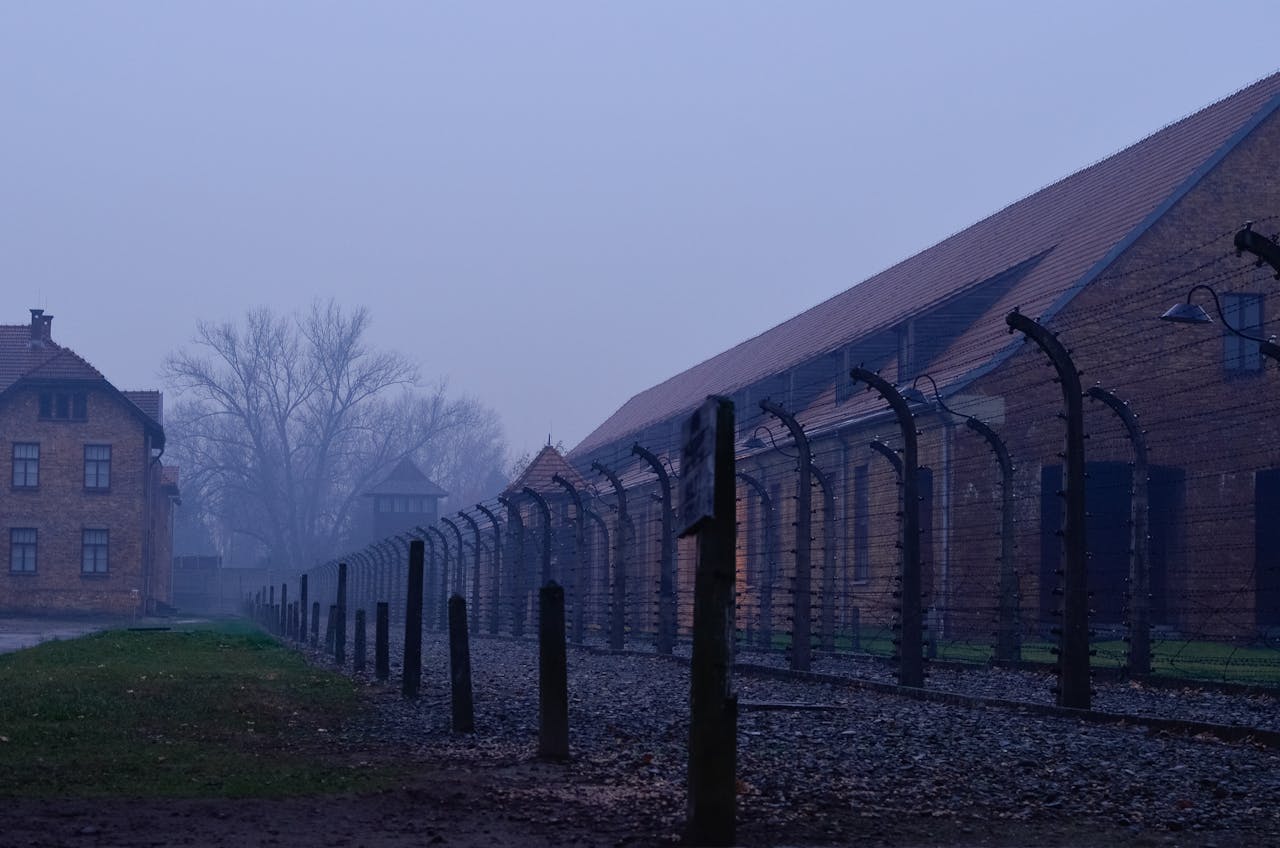Have you ever found yourself lost in the shadows of history, grappling with the unimaginable? When I first delved into “Night” by Elie Wiesel, I was struck by how a book could carry such a weight of emotion and truth. Wiesel’s memoir isn’t just a recount of events; it’s a raw, personal journey through the darkest moments of human history.
1. A Descent into Darkness
“Night” opens with an almost serene scene of Wiesel’s childhood in Sighet, a small town in Transylvania. It’s a world that feels worlds away from the horrors that are about to unfold. Wiesel paints a picture of a tight-knit Jewish community, a young boy fascinated by religious studies, and an ordinary life disrupted by the encroaching darkness of war.
Imagine living a life where each day is marked by an undercurrent of anxiety, an inkling that something terrible is brewing on the horizon. This is where Wiesel begins, capturing the normalcy before the storm. His innocent world is shattered when the Nazis invade, and the once peaceful Sighet becomes a place of fear and displacement.
As the story progresses, Wiesel’s narrative shifts from the relative safety of his hometown to the harrowing reality of concentration camps. The transition is jarring, and it’s almost like being yanked from a serene landscape into a nightmarish abyss. Wiesel’s account of the journey from Sighet to Auschwitz is chillingly vivid, showcasing the brutality and dehumanization of the Holocaust.
2. Survival Amidst the Abyss
One of the most striking aspects of “Night” is its exploration of the will to survive in the face of unimaginable cruelty. Wiesel doesn’t shy away from describing the physical and emotional toll the concentration camps take on him and his fellow prisoners. His survival is a testament to human endurance, yet it’s also a struggle fraught with moral and existential dilemmas.
Every page seems to resonate with the suffering of Wiesel and those around him. The constant struggle for basic necessities—food, water, safety—becomes a metaphor for the larger battle for dignity and humanity in a place designed to strip them of both. As Wiesel grapples with his own survival, he also wrestles with his identity, faith, and family. The loss of his father is a poignant and heart-wrenching moment that underscores the theme of isolation and loss that permeates the memoir.
3. The Erosion of Faith and Humanity
One of the most profound elements of “Night” is its exploration of faith and the erosion of belief under extreme conditions. Wiesel, once deeply religious, finds his faith shattered as he witnesses the horrors around him. The question of why God would allow such suffering becomes a central theme, and Wiesel’s struggle with this question reflects a broader existential crisis.
In the camps, the divine seems absent, and the brutality of human actions challenges any remaining sense of spiritual solace. Wiesel’s journey through the darkness isn’t just a physical one but a spiritual and philosophical odyssey as well. His reflections on faith, or the loss of it, are both personal and universal, making “Night” a powerful meditation on the limits of human endurance and belief.
4. The Aftermath: Reflections on Memory and Identity
As the war ends and Wiesel is liberated, the narrative shifts to reflect on the aftermath of such profound trauma. The liberation doesn’t mark the end of suffering but rather the beginning of a new kind of struggle—rebuilding life and identity in a world forever changed. The scars of his experiences are deep, and the process of coming to terms with them is depicted with a stark honesty.
Wiesel’s memoir doesn’t just recount the past but also serves as a reflection on memory and the impact of trauma on identity. His recounting of the aftermath is not just about personal recovery but also about the collective memory of a people who endured unspeakable horrors. The book becomes a testament to resilience and a call to remember and honor those who suffered.
The Power of Wiesel’s Story
Wiesel’s “Night” is more than a historical account; it’s a deeply personal narrative that brings the horrors of the Holocaust into sharp, painful focus. It’s a reminder of the capacity for both human cruelty and human endurance. The memoir’s power lies in its ability to convey the indescribable and to make the past resonate with readers today.
As I reflect on Wiesel’s story, I find myself grappling with its significance and impact. How does such a deeply personal account of suffering and survival affect us today? What can we learn from Wiesel’s experiences that might help us understand our own struggles and those of others?
What do you think the memoir “Night” reveals about the human spirit and our capacity to endure even the darkest of times?




